Greg Juhn - Technology And Dark Humor
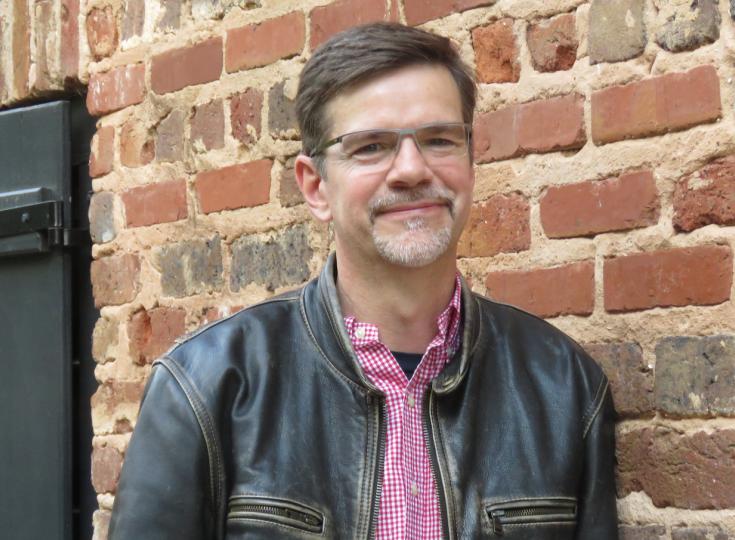
Greg Juhn loves technology, but is also well aware of the scary new problems it can create. He used his extensive knowledge about the subject, along with his fondness for dark satire to write The Perfect. The novel was almost two years in the making, but gives readers plenty to mull over. Today we talk to Greg about his personal thoughts on technological breakthroughs, the challenges in store for robotics and why he thinks authors have a lot to fear from robotic writers in the future.
Please give our readers a quick introduction to The Perfect
The story takes place 35 years from now, when artificial intelligence and robotics are just beginning to dominate everyday life and their major effects on society haven't quite hit yet. Until this point, robots have been innocuous machines designed to perform specific tasks, and they are popping up everywhere in all facets of life. A leading robotics company has created one that mimics humans perfectly, and it's stronger, more confident, and much smarter than any of the dumb humans around it. Realizing how threatening the machine is to the average consumer's sense of self worth, the company asks their head of marketing to spend a week with it and find a way to convince the world that they need such a thing. As the machine proceeds to effortlessly outdo everyone, it falls on the radar of a deadly organization. In my opinion, because advanced technology is always dangerous, any story about advanced technology is also the story of humankind's determination to destroy itself.
The Perfect is your debut novel. How has the experience been so far?
I did a soft launch in April and the early feedback has been wonderful. I'm just starting to ramp up the publicity now. The novel was almost two years in the making, which is kind of on the long side. I've done a lot of writing my entire life, and I wrote an earlier novel, but this one was an intense effort. After I completed the major writing and entered the serious editing phase, I ended up cutting the novel down substantially because I thought it flowed better at a fast pace. I'm a big believer that a story should be as long as it was destined to be, and not one word more. As a reader, I don't like wading through fluff. To any of your readers who give The Perfect a try, please leave a review and let me know what you think. Books live or die by their reviews, so it's in your hands now!
What are your personal thoughts on all the technological breakthroughs we are seeing happening all around us?
I have always loved technology and I am optimistic about all the problems that technology can solve. But it also seems that, as technology barrels along getting smarter and better, it creates scary new problems. With every day that goes by, machines are getting more autonomous. That should give us some pause, but I don't think there is much we can do to stop it. There is something strangely meta-human going on with the advance of technology -- and by that I mean the advance of technology almost seems inevitable. It's beyond the ability of humans to stop what they are doing. Technical achievement has a life of its own, and there is some endpoint out there that will be reached sooner or later, despite what humans have to say about that.
What was the most challenging aspect of writing about a “relentlessly smart machine” and ensuring that it is believable?
Well, as the author I had the luxury to get my facts right. Once I had the premise of the super-annoying machine from hell dropping smack into an unsuspecting, ordinary guy's life, there was a lot of fertile territory to explore. People who like to give advice to writers always say, "Don't make your character perfect." A good character should have some critical flaws, at least in a conventional story. But what if a character WAS perfect – a machine that was never wrong? How annoying would that be? How fast would a flawless know-it-all put you over the edge? How bad could this character screw up your life? What havoc could be unleashed? What disaster would it bring to our species as a whole?
I had a blast writing this novel. The robot is both likable and annoying. The software executive who has to watch him for a week is, deep down, very insecure, and he overcompensates by treating the machine like an idiot. They immediately start pushing each other's buttons. There is a friend-enemy dynamic that escalates and accelerates and eventually spins into chaos.
What is your favorite robot related tale (book/movie etc.) and why?
In the early 70s, I read Asimov's I, Robot and loved movies like Silent Running and 2001, and those classics got my imagination going about artificial intelligence from an early age. However, my favorite works have been coming out over just the past couple of years. There is a French film called Replika doing the film festival circuit right now, and I really hope that it is available online some time. In this film, a couple who are unable to have children have a young daughter, a surrogate machine that they purchased as if they had bought an appliance. While this premise seems far fetched, the couple is clearly attached to her. Early in the film, the girl has become infected with a software virus and her language abilities quickly deteriorate. The couple is told that only 10% of her memory can be saved, so they make the decision to switch her off. The film successfully makes the viewer emotionally attached to this machine, really, in just the opening minutes.
Films that are coming out now are exploring how machines will integrate into our lives in a way that feels more emotional and existential than the blockbusters of the past couple of decades. Replika affected me the same way Silent Running did forty years ago. Even though Silent Running is a 70s-era hippy film about a lonely guy on a spaceship, you get very attached to his awkward, boxy, goofy robots. With many current films like Replika, the androids are so similar to humans that they evoke very powerful positive and negative reactions.
What do you think the greatest challenge in robotics will be?
You can go on YouTube and see robots try to kick a soccer ball in a net, and they wobble and fall over. We laugh because they still seem so primitive, even in 2016. But watch the recent video by Boston Dynamics where an engineer pushes their Atlas robot in the back with a pole, and it goes sprawling forward onto its face. A moment later, the machine just springs right back up. Put some military software in that thing and tell it to kill someone, and you have a real problem. I don't think the hardware is going to be a challenge at all. We will make autonomous machines in every shape and size that perform every possible function, with lightning moves and blazing fast processing time. And yes, we will also make machines that look just like us, complete with a devilish glint in the eyes and a touch of mischief in the smile, and which replicate our movements perfectly. The bigger challenge will be getting machines to mimic human behavior and communication in a way that tricks us into thinking we are interacting with the real thing. Like everything, though, it's just a matter of time. I don't spend time wondering whether machines will become "conscious" or have "real" emotions. For now, it is enough to know that they'll have the ability to mimic us perfectly.
Do you think there are any aspects of humanity that robots will never be able to emulate?
No. I don't know how long it will take, but eventually machines will emulate everything humans do perfectly, and they will become better than us at everything. I am well aware of the significant technical hurdles before that happens, but I have little doubt that the time will arrive, probably a lot sooner than we think.
We have already seen automated systems starting to write news stories, do you think authors have anything to fear from robotic writers in the future?
Absolutely. Everyone will be replaceable by a machine, including writers of novels and poems. You'll be obsolete unless you can think faster than the machine of the future, make more creative connections, have less self doubt, more energy, work more collaboratively, and do all that with a lot more reliability and consistency than a machine. It may be 100 years before artificial intelligence performs as well as a doctor or a novelist, but I wouldn't place all your hopes on the idea that there are "irreplaceable" jobs or human-only endeavors.
As many people have pointed out, we keep crossing off the list things that "only humans can do." I don't see why there will be anything that stays on that list after everything else is crossed off.
Tell us a bit about your writing habits. What does your daily schedule look like when you are writing?
I have a day job that keeps me very busy, so I write in the evenings and on weekends. If you stay focused and have a great story, you can get a lot accomplished that way. With The Perfect, I went through multiple rounds with my editor, then gave it to my beta readers. I'm a stickler about typos and any little flaw like that, so by the end of the whole process with The Perfect, I thought I'd found everything. Yet my beta readers still found a few mistakes. Remember -- machines won't leave typos in their stories, and they won't accidentally use a different name for a character or leave an important subplot unresolved. So if you see those kinds of mistakes in a story, be grateful that a human wrote it.
That said, I think I corrected all my mistakes. That's a challenge to you, readers.
What, if any, laws would you add to Asimov’s three laws of robotics?
I think one of the takeaways of Asimov's stories is that there is no way to write foolproof rules that keep machines subservient to people. No set of rules can accommodate every complex scenario. Therefore, his laws are not practical concepts for real-world artificial intelligence. Today, there is real concern that artificial intelligence researchers are not trying hard enough to build safeguards into advanced autonomous software. Personally, I doubt there is any way to prevent artificial intelligence from running amok - the idea that organizations around the world will all enforce safeguards seems like just another fanciful variation of the three laws, or maybe a version of arms control. I doubt there is any way to keep the genie in the bottle. The genie is probably going to pop out of the bottle.
Some of the people reading this right now may even meet the genie.
Technology based fiction isn’t typically known for being humorous. What made you decide to take this approach for The Perfect?
This story is serious and I strove to make it plausible. At the same time, the tone is comic. That's the essence of dark comedy -- tackle serious subjects in a realistic way, with a strong dose of absurd irony about that reality.
I really love dark satire, like the movie Dr. Strangelove. There is something inherently comic about the way the human race barrels headlong into danger, and there's really no way to stop it. Tinkering with technology isn't going to end, ever. We will push the boundaries right up to the end. There's so much irony and delicious absurdity in our situation that I wanted to have fun with that. Above all, I wanted The Perfect to be very entertaining, and the comic tone fit that goal best.
What are your all-time favorite movies?
Dr. Strangelove is pretty high on the list. I also love tech-driven thrillers - Jurassic Park, The Terminator, all that great stuff by Cameron and Spielberg.
What are you working on right now?
I have the sequel to The Perfect fleshed out, but currently I am working with a writing partner on a new techno thriller series. The hero is an agent whose job is to hunt down terrorists that find scary new ways to wreak havoc in our world. I want to explore all the low-cost ways that terrorists will cook up mass chaos. How long will it be before someone flies a swarm of homemade armed drones into a crowd and presses a button to have their autonomous software shoot anything that moves? How are the police going to deal with that? The near future is pretty terrifying. That scenario is plausible, right now.
Where can our readers interact with you and stay up to date with any new releases?
I am on twitter, and there is a newsletter you can subscribe to on my website: www.readtheperfect.com. if you want an update on when those books are ready, please sign up for my newsletter on my website!
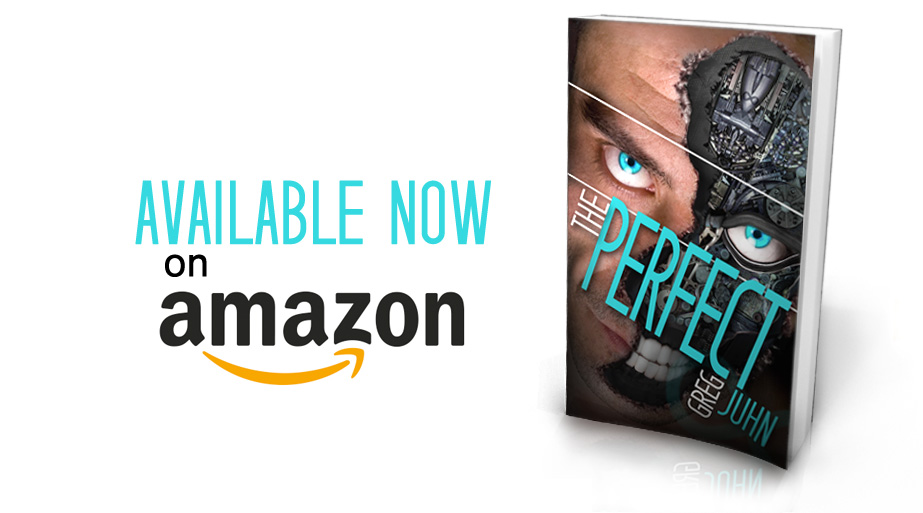
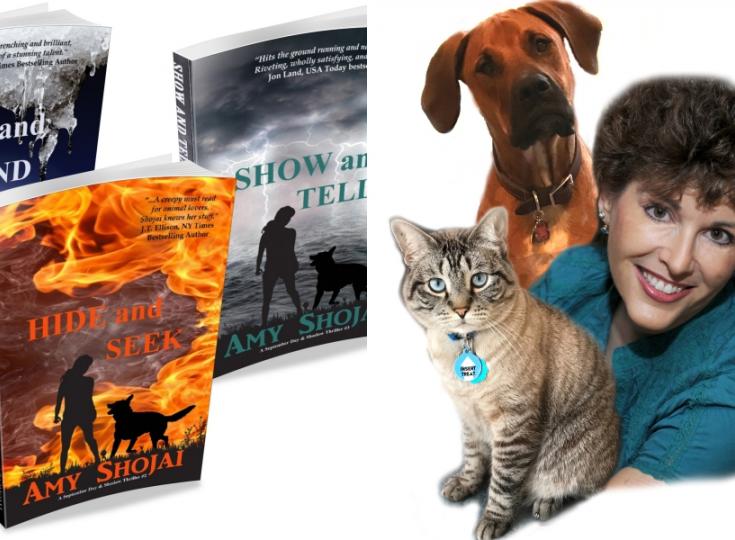
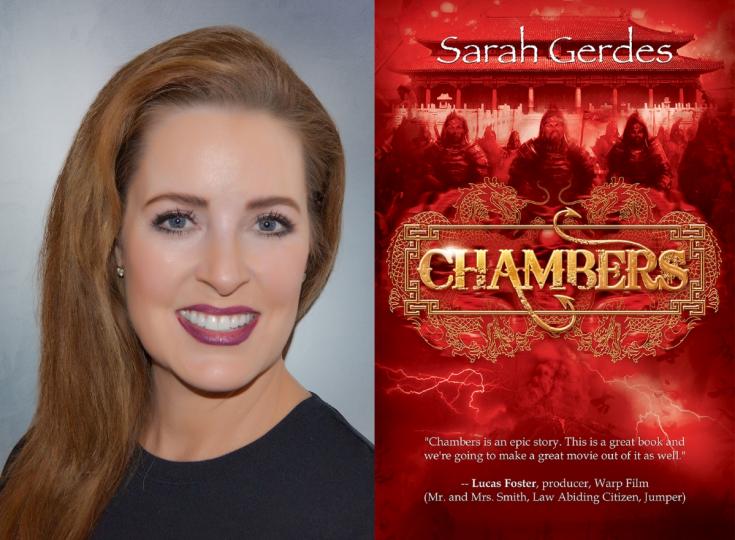

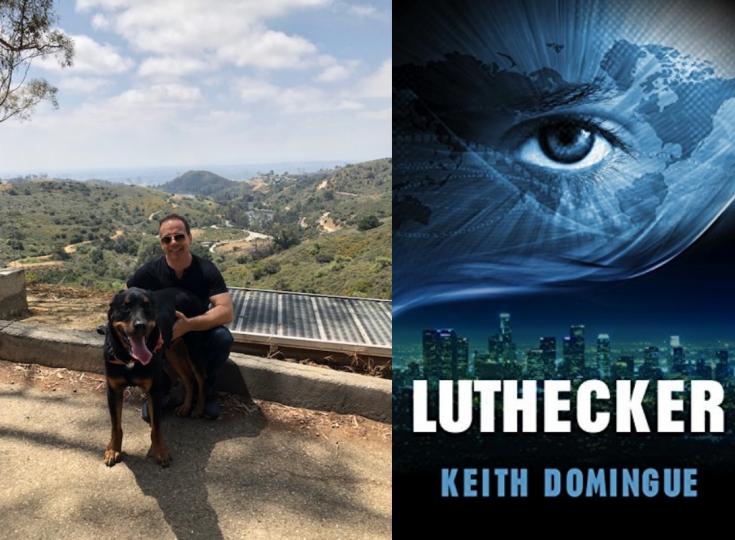
-itok=vcKIB5v1.jpg)
